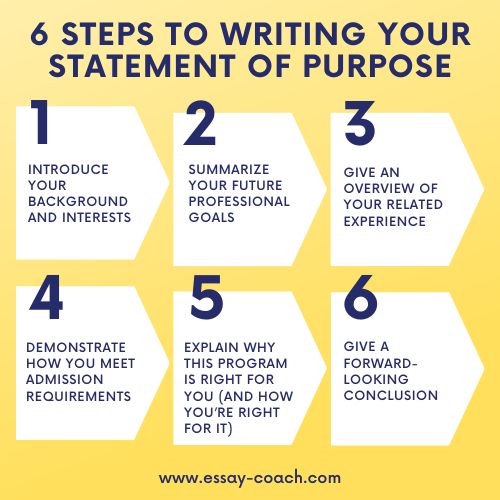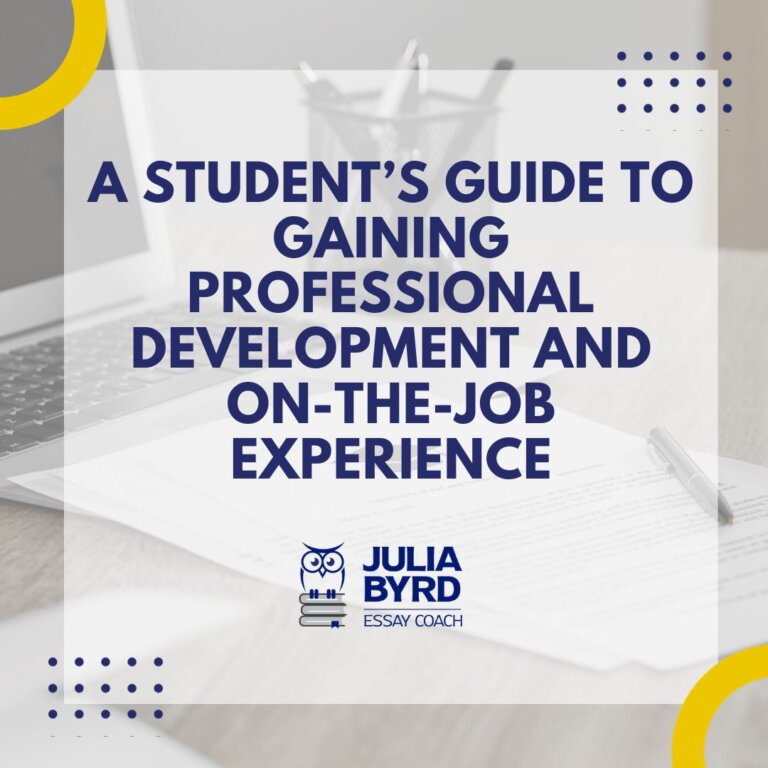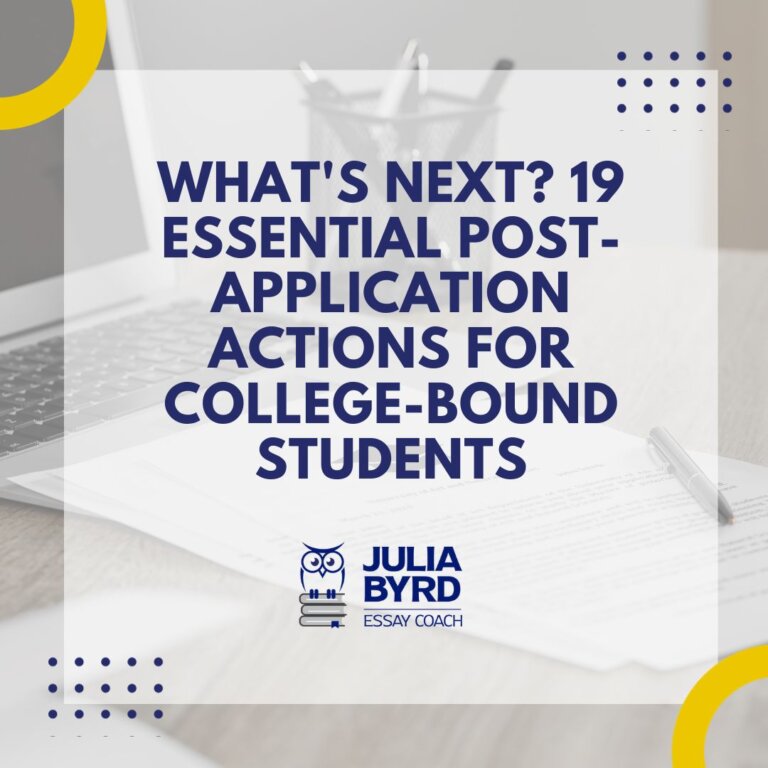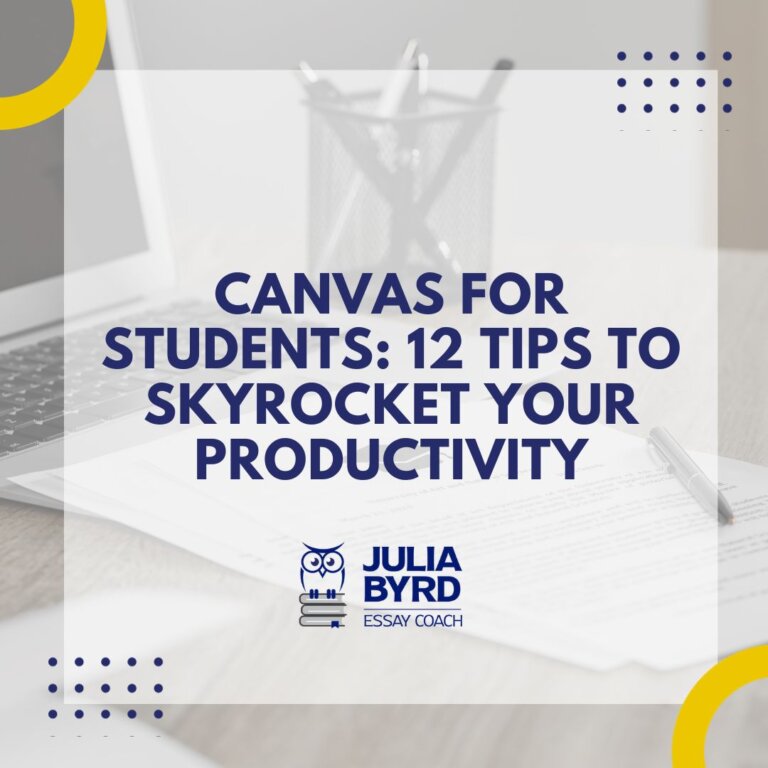Your Guide to Success: Writing a Powerful Statement of Purpose


Whether you’re thinking about transferring schools or applying to graduate school, the statement of purpose will likely play an important role in your application. Just like a well-written personal statement was an essay that contributed to your undergrad college acceptances, the statement of purpose is a critical component of a great admission package. It introduces your skills, experience, characteristics, values/strengths, and goals to admission officers and shows them how you’ll be an important addition to their institution.
But don’t let the importance of this essay panic you. Following these tips and tricks, you can write a statement of purpose that'll have admissions committees falling over themselves to accept you. (OK, that might be a slight exaggeration, but this blog will help simplify knowing what to include when writing an effective statement of purpose and make it easier to start.)
In this blog, we’ll cover:
- What a statement of purpose is and why it’s an important part of your application
- The essential components to writing a great statement of purpose
- How to confidently go from rough draft to final version
What Is a Statement of Purpose?
First things first, let's define what a statement of purpose is.
Simply put, it's an essay that provides a snapshot of who you are, what you want to study, and why you're the perfect candidate for a particular program. In essence, it's your chance to sell yourself to the admissions committee and convince them that you're the missing piece to their puzzle.
While your original college admission essay was a storytelling narrative written in a casual, conversational tone, the statement of purpose will be more formal, matter-of-fact, and informative, with a focus on demonstrating your unique experiences and interests, qualifications, and ultimate career goals. But the objectives of both written pieces are the same: Add some color and personality to an otherwise heavily black-and-white, data-focused application.
By the time admission officers are finished reading your statement of purpose, they should be convinced of three things:
- You have the characteristics and relevant experience to be successful at their institution.
- You’ll help them achieve their goals.
- The college will help you achieve your goals.
Some may say the statement of purpose is one of the most important pieces of your application, because it gives the reader insight into your ultimate goals and objectives.
Now, let's dive into the nitty-gritty of writing a statement of purpose that'll make you stand out from the crowd. (While you're at it, another great resource to bookmark is this guide from the College Essay Guy.)
The Parts of a Great Statement of Purpose
There are several important components of a great statement of purpose, including:
- An introduction to your background and interests
- A summary of your future professional goals
- An overview of your related experience
- A demonstration of how you meet admission requirements
- An explanation of how this program is the right fit for you and your goals (and how you’re a right fit for the program)
- A forward-looking conclusion

Now, let’s go through each section and talk about how to get ideas for writing it.
1. Include an Introduction to Who You are and How Your Interest Started
Admission officers want to know your interests — especially those related to the field you’re applying to. So tell them: How did you get interested in your particular field of study? What class, experience, or epiphany sparked your passion for psychology or engineering, for example? What have you accomplished or experienced that has helped steer you toward your professional goals?
Suppose you want to become an orthodontist because having braces transformed you from an introverted, self-conscious child into an adult leader. Share that! Or maybe you’re a first-gen student who wants to become a lawyer to advocate for immigration rights. Tell the reader about it! Consider kicking your statement of purpose off with an attention-grabbing story about you and your background and how that connects with your future goals.
While giving this context is important, it should take up only a relatively small part of your essay. You simply want to show you’re committed to this field and that you’ve spent time exploring it on your own. By sharing what motivates you — which may be professional development, social justice, personal growth, or something totally different — you’ll set the foundation for showing your fit with the program.
2. Communicate Your Professional Goals
Admission officers need to know that you’re clear on what you want to do in your career, what problems you want to solve, what questions you want to answer, and what goals you want to accomplish. So share that in your statement of purpose, if you didn’t cover it in the first section. What are the personal reasons/experiences that are driving your professional goals?
Being specific about these will allow admission officers to clearly picture how their curriculum and opportunities will support your vision.
3. Share Your Experience in the Field
It's not enough to simply say that you're interested in pursuing a particular degree. Instead, admissions committees want to know:
- Why you're interested in a particular program
- What specific research interests you have
- How your experiences have prepared you for this next step
Because the goal of the statement of purpose is to show why you’ll be a great addition to the program, you’ll want to be specific about discussing how your experience has helped you get to where you are.
So if you’re interested in mechanical engineering, share how you first became interested in the field (did you build a kinetic sculpture and became fascinated with how things moved?) and how you’ve continued to explore the field and your interest in it.
Remember, it’s important to include not just what you did, but also what you learned from it and how you’ve grown personally and professionally because of it. This shouldn’t be a list of accomplishments (this list will likely already appear elsewhere in your application); rather, it should show how each step in your educational journey has made you more curious and more dedicated. Use vivid, detailed examples that convey your passion.
While you might not be able to include all of your field-related experience, you should include those that have been exceptionally impactful or that have shaped you. You want to show you’re a competitive candidate with the experience and passion to excel. Experiences you might write about include:
- Research. You can include details like the project name, your role and responsibilities, your goals and objectives, and your outcome. What did you like about doing the research? What did you learn about yourself and the field from it?
- Papers, projects, and published articles. If you’ve completed any projects that have helped you answer the big questions related to your field, this is a great place to include those details.
- Work experience (paid, volunteer and community service, and internship) and work with mentors. Again, share what you did in these activities and what you learned. How did this experience help you become more interested in the field? What questions were you trying to answer – and what new ones do you have? How have these experiences helped you hone in on what you want to do?
- Memberships, awards, and accomplishments. If you’ve got some industry-related memberships, awards, or accolades, include the details of those here.
You want to be clear, concise, and specific in what you say here so you come across as curious, dedicated, and passionate.
4. Demonstrate You Meet Application Requirements
If the program you’re applying to has specific requirements you must meet (e.g., volunteer/work experience, coursework), make sure you address the experience in your statement of purpose.
Your statement of purpose prompt may also require you to answer specific questions in your response, so make sure you address those as well. You want to demonstrate that you can read, understand, and follow directions.
5. Show Fit and Why You’ll Be an Asset to the School
Next, you’ll want to show admission officers why you’re a good fit for their program — how you’ll benefit them, and how they can benefit you. Here are some ways you can show that you’ve researched and chosen their program intentionally, that you have a genuine, strong interest in the program, and that you know what you’re going to get out of it — and how specifically you’re going to do it.
- Demonstrate your curiosity. Share the goals you have in your field and how the school will help you achieve them. What burning questions are you trying to answer? What problems are you trying to solve? Why are this school and its resources the perfect place to help you do that?
- Connect with relevant courses. Look through the school’s course catalog online and find some courses you want to take. What one-of-a-kind courses connect with your interests? What research projects will you get involved with? What labs are you excited about participating in? What questions will you ask, and how will you find the answers? Explain how these classes will help you achieve your goals. What will you bring to the classroom discussion, and what will you take away from it?
- Identify professors with similar interests. While you’re looking through the course catalog, also look through the faculty directory. What professors have similar interests to yours? Are there some who would make good mentors for you? How? How might you further the research they’re doing? How does your experience complement their interests?
- Identify other school-related resources. What professional organizations does the school offer that you want to join? What internships do you want to complete?
- Dig deep. You might even see if your target program has been in the news. Have they acquired new tools for the lab? Partnered with a local company to serve the community? Made a relevant discovery that will change the face of the field? Show you’ve done your research!
This section is essential for sharing with the reader that you’re crystal-clear about what you expect to get out of the program and how it will make you a stronger student in the field of study.
6. End With a Restatement of Fit and a Look Ahead
You can conclude your statement of purpose with a simple forward-looking statement, reinforcing your qualifications and fit for the program and emphasizing your excitement for attending.
Writing Tips
Now that you know what to include in your statement of purpose, it’s time to start writing. Here’s how to tackle turning your ideas into words.
Start Drafting
Your statement of purpose shouldn’t be just a list of facts and figures or a boring list of accomplishments. Admissions committees want to get to know you, so don't be afraid to let your personality shine through. Using the ideas you’ve generated from the previous section, tell a story that answers these questions:
- Why do I want this degree?
- What drives and motivates me?
- Why am I interested in this field of study?
- What experiences have I had that have shaped my goals?
- What specific courses and unique program features are most appealing to me?
- What do I want to get out of this program?
- Where do I want this degree to take me, in both my professional and personal life?
- How will the experiences I’ve had contribute to the success of the school and program?
- Why are [insert school name] and I the perfect fit?
Follow Formatting and Prompt Instructions
Following instructions is important, so pay attention to the essay guidelines, like word count, spacing, margins, and font size.
If you’re not given any guidelines, keep these suggestions in mind:
- Answer the question(s) asked in the prompt.
- Add your name and the program you’re applying to at the top of the essay.
- Use an easily readable font, like Times New Roman.
- Don’t go any smaller than an 11- or 12-point font.
- Have a big-enough margin (minimum 1 inch) that the essay is easy to read.
- Use 1.5 or double line spacing.
- Use a more formal tone.
Admissions committees have a lot of reading to do — and they’ll already have your transcript, application, letters of recommendation, and other parts of your application — so keep your statement of purpose concise. Most application essays have a word limit, so adhere to it. If you’re not given a word count for your essay, aim for roughly 500-700 words. Trust me: Admissions committees will thank you.
Be Unique … but Be Yourself
Admissions committees read hundreds, if not thousands, of statements of purpose every year. So, how do you make yours stand out? By being unique. Don't be afraid to share the personal stories that have shaped you and to show your personality in your writing. Balance a professional tone with personality. This is your chance to show the admissions committee what makes you, you.
Review, Review, Review
I can't stress this enough. Review your statement of purpose multiple times before submitting it. Nothing says “I don't care about this program” more than a statement of purpose filled with errors or that doesn’t follow the instructions.
A great statement of purpose doesn’t just tell a great story — it tells a great story well. So it’s essential to put your best writing foot forward.
Here are a few ways to do just that.
Check for Flow and Content
On one of your reviews, check to make sure your ideas flow logically and that you clearly and concisely communicate them.
Check for Spelling and Grammar Errors
That means not relying on spell-check to catch everything. Read the essay through yourself more than once. Consider reading it aloud to yourself or using the Read Aloud feature in Microsoft Word. You can even use Grammarly to catch grammatical, spelling, and punctuation errors.
Double-Check Requirements
Make sure you’ve followed all instructions regarding length (both word count and page count) and formatting. Don’t use filler words to get to the upper limit or make you sound like someone you’re not.
Ask for Feedback
Have someone else read over your essay. It could be a friend or family member, or you could ask a trusted adult (like a teacher, mentor, or boss) for their feedback.
Give It a Rest
If all you’re doing is working on this essay and reading it repeatedly, it’s easy to see what you want to see — and you may be overlooking obvious mistakes or key areas for improvement. Take a day or two off, and don’t look at your writing. When you do come back to it, you might see new opportunities for strengthening your essay.
Need Another Set of Eyes on Your Statement of Purpose?
While writing a statement of purpose for graduate school can be a daunting task, with a little bit of effort and the right approach, you can write a statement of purpose that'll have admissions committees ready to accept you. Just remember to be specific about your goals, show what you’ll bring to the program, proofread, and follow instructions. If you can do that, you’ll end with a successful, effective statement of purpose.
But if you feel like you still need extra support while writing, reach out. My hourly or Personal Statement Review packages might be just what you need to confidently submit your graduate school or transfer application.







